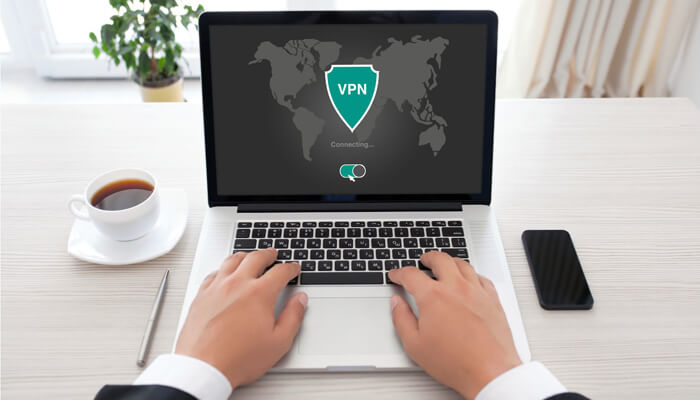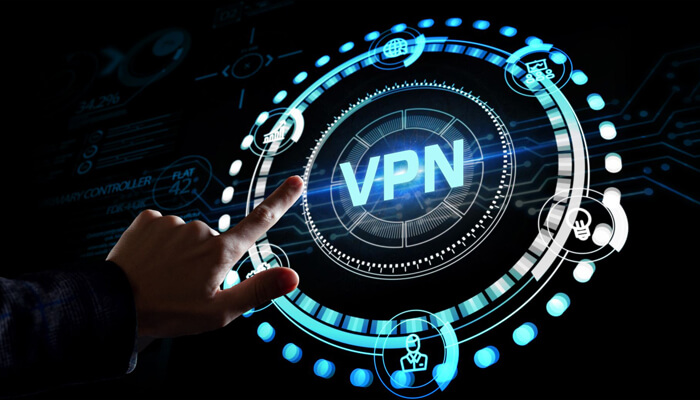A virtual private network, shortly known as VPN, is a technology that allows users to ensure secure private browsing. Apart from individuals, many businesses and companies use VPNs to overcome unwanted problems. Using VPN security will benefit an organization in various ways.
It provides methods to prevent hacking and other potential problems to get peace of mind. With VPN, users can reduce spying and secure their data shared on that network. Another thing is that it offers high-level privacy to users to reduce risks.
How do VPNs ensure data security?
VPN is the best choice for those who want to secure their data from various problems. It works on encryption technologies that scramble data so that only authorized persons can access the details. Moreover, the network hides the IP addresses of a user’s device and replaces them with virtual addresses.
Devices that have a VPN connection create encryption keys that provide ways to encode and decode all details sent between them.
Some people may use antivirus software programs to prevent malware and viruses. However, they don’t guarantee 100 % protection for mobile phones and other devices. A VPN serves as an additional layer of security when antivirus protection fails.
Here is how VPN ensures data security.
1. Secure transmission of data
The primary advantage of using a VPN is that it provides ways to transmit data safely. Users can protect their sensitive data from third parties and internet service providers. They can even prevent cookies and traceability in search engine history. Moreover, it helps avoid hacking personal and financial data to a large extent.
2. Limits data access
Data security is important for a business or company when it wants to prevent data from theft and hacking. A VPN offers solutions for those who want to limit data access. That means only authorized people who have special rights can access the information.
3. Safe password resetting
Hackers can see the passwords while browsing the internet on unsecured networks. They will ask for a password reset without using two-factor authentication. ExpressVPN’s research found that most people don’t know how to reset their passwords when they forget or replace the existing ones. Therefore, choosing a strong VPN connection provides ways to get protection from unwanted problems effectively.
It allows users to know more about password research in detail which helps ensure high protection from unwanted problems.
4. Privacy on public networks
Public Wi-Fi networks are becoming very popular these days because they allow people to browse the internet with ease. A VPN network allows users to overcome safety risks and other problems with high success rates. It helps to avoid data theft and hacking problems while using public networks.
5. Offers a better browsing experience
VPN offers a better browsing experience to users by addressing their needs. It gives ways to avoid tracking, storing, and collecting data. Users can also hide the cached data with a strong VPN connection.
The role of VPN in access control
Accessing certain websites including social media channels is not allowed in certain regions that require proper control. VPN allows users to access content in geo-restricted locations thereby showing ways to gain more advantages. It won’t show the original address of a user’s device and detects only the IP address of a permitted location. A person can view blocked websites in a restricted area with a VPN connection.
Knowing the drawbacks of VPN access control
While VPN access control provides several advantages, users should know the drawbacks in detail. This is because some websites and apps started detecting the same efficiently and one should consider switching over to another VPN network soon.
Here are some challenges users may face when it comes to VPN access control.
1. Data breach
A majority of people prefer a VPN to ensure data security. On the other hand, some VPNs may act in unfair ways and users should follow careful measures. The best way to avoid the problem is to select a connection that comes with a no-logging feature. Free VPN service providers can sell the data to third parties which will result in risks. Therefore, it is wise to review and know the logging policy of a VPN connection with more attention.
2. Multiple users
If a company uses a VPN, then all employees can access the data easily. Although different departments in a company use different VPNs, employees in a particular department can access the data.
3. Data and communication management may become difficult
It becomes difficult for a business to use multiple VPNs together. This is because they will slow down the speed of the internet which results in data and communication management problems.
How to choose the right VPN?
Anyone who wants to choose the best VPN should keep certain things in mind that help make the right decision. The first thing is that they must read reviews online which give methods to gain more ideas. Moreover, they should select a VPN that provides more privacy and safety to data. Users should evaluate the security protocols offered by a VPN because they help prevent avoid prevention of sensitive data from theft and hackers.
At the same time, they should evaluate the advantages and disadvantages of each protocol properly. The best VPN services provide access to multiple devices and users should know them before choosing them. Speed is another crucial factor to consider when selecting a new VPN network to perform tasks without any hassles.
Conclusion
VPN is suitable for a business or company because it provides ways to protect data from complex issues. At the same time, users should give more importance to data security and access control. Although most VPNs allow users to enjoy more features, some virtual private network service providers provide additional features for users to accomplish their goals in the browsing process.



